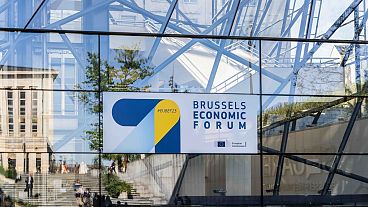"Step by step, whenever opportunities present themselves, the Kremlin is ready to use all means at its disposal to regain what it considers its own...", A VIEW by Carl Bildt
By Carl Bildt, Sweden’s foreign minister from 2006 to October 2014 and Prime Minister from 1991 to 1994
WASHINGTON, DC – Russia is once again at the center of policy debates in many Western capitals. And for the third time in a row, a new US president will start his administration with ambitions to improve bilateral relations. To understand why achieving this goal has been so difficult, it helps to take a longer historical view of the Russian state.
It is now a quarter-century since the Soviet Union disintegrated; and 2017 will mark the centennial of the Russian Revolution, which toppled the teetering, centuries-old czarist empire. As it happens, there are telling similarities between the periods that followed each of these imperial denouements.
Russia’s history has been characterized by continuous expansion over the Eurasian continent. The czars’ eastward push into Siberia mirrored America’s westward push during the nineteenth century, and Russia’s expansion into Central Asia coincided with the European powers’ colonization of Africa.
But as Imperial Russia expanded westward and southward, it always encountered opposition, and had to use force to keep newly acquired territories within its domain. After the 1917 revolution, many of these areas – from Tashkent to Tbilisi, and Kyiv to Helsinki – sought independence from Muscovy’s yoke.
At first, Vladimir Lenin seemed amenable to these demands; but he soon deployed the new Red Army to impose Soviet power across the former Russian Empire. It succeeded in Ukraine, the southern Caucasus, and Central Asia. But it failed in Finland and the Baltic states, and it suffered a crucial defeat outside Warsaw in 1920. This allowed a string of independent states to emerge from the former Russian Empire’s western flank.
But then Stalin came to power. Using terror and forced industrialization to try to make Russia great again, he sought to reassert imperial control over its former territories. Stalin found an opportunity in secret talks with Adolf Hitler, where he demanded the return of what had been lost after 1917, including the Baltic states, Finland, and part of Poland.
He eventually got it. After Hitler’s Reich collapsed, not least owing to the sacrifices of the Red Army, Stalin had carte blanche to extend Soviet power deep into the heart of Europe. Only Finland preserved its independence – miraculously, and by force of arms. The Baltic countries were brutally brought back into the Soviet fold, and Poland and others were reduced to satellite states.
In 1976, a top US State Department adviser to Henry Kissinger controversially argued that Russia had failed to establish “organic” relationships with these countries. True enough, as the Soviet Union collapsed, the satellite states hastened its demise by reasserting their sovereignty; in short order, almost every non-Russian republic in the former USSR demanded, and secured, independence. With Ukraine and countries in the South Caucasus achieving statehood, Russia controlled even less territory than it did after the 1917 revolution.
Vladimir Putin, like Lenin a century ago, is intent on changing that. Since coming to power following Russia’s tumultuous attempts at liberal and democratic reform in the 1990s, it has become increasingly clear that Putin aspires to make Russia great again, both economically and geopolitically. Despite some obvious differences between the founding of the Soviet Union and now, the historical parallel is too obvious to ignore.
Under Putin, Russia has invaded and occupied parts of Georgia, annexed Crimea from Ukraine, and militarily propped up two sham “republics” in Eastern Ukraine. Russia has also tried – so far unsuccessfully – to establish a Novorossiya across Southern Ukraine.
Step by step, whenever opportunities present themselves, the Kremlin is ready to use all means at its disposal to regain what it considers its own. Putin may not have a firm or comprehensive plan for imperial restoration, but he undoubtedly has an abiding inclination to make imperial advances whenever the risk is bearable, as in Georgia in 2008 and Ukraine in 2014.
So, what lessons can we take from the past? For starters, Russian imperialism has thrived when Europe and the West have been divided. This was the case when Hitler and Stalin entered into their non-aggression pact in 1939, and when Napoleon and Tsar Alexander entered into theirs in 1807. And we certainly should not forget the Yalta Conference in 1945.
Expanding both NATO and the European Union to include the Central European and Baltic countries has been essential to European security. In any other scenario, we would probably already be locked in a profoundly dangerous power struggle with a revanchist Russia reclaiming what it had lost.
The collapse of the Soviet Union in 1991 and the Russian Revolution in 1917 reshaped regional and global politics. In the immediate aftermath of each event, Russia demonstrated its historic inability to build harmonious relations with the countries along its periphery; and in the intermediate periods, it acted on its imperial ambitions at these countries’ expense.
But Russia will come to terms with itself only if the West firmly supports these countries’ independence over a prolonged period of time. Eventually, Russia will realize that it is in its own long-term interest to break its historical pattern, concentrate on its domestic development, and build peaceful and respectful relations with its neighbors.
We are certainly not there yet, but that’s no reason to throw in the towel – or throw out the lessons of history. We need a stable, prosperous, and peaceful Russia. And that can be achieved only with determined support for the independence and sovereignty of all of its neighbors.
The views expressed in opinion articles published on euronews do not represent our editorial position
Copyright: Project Syndicate 2017


